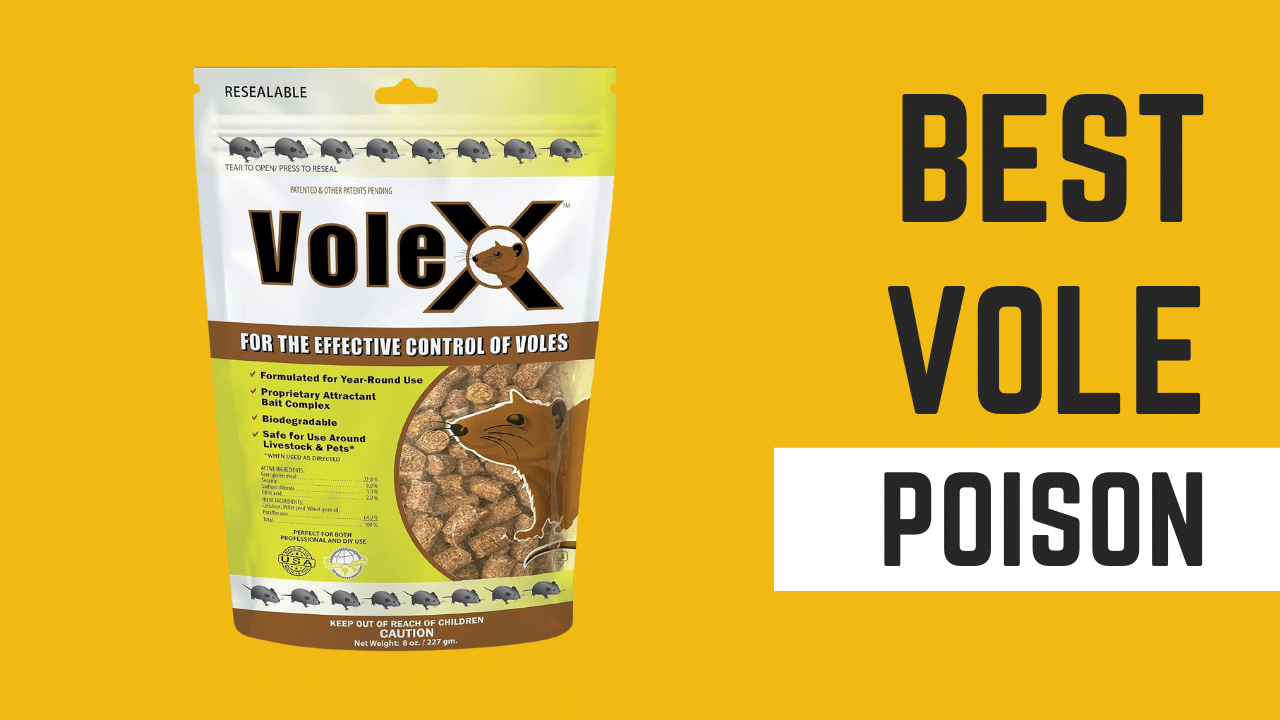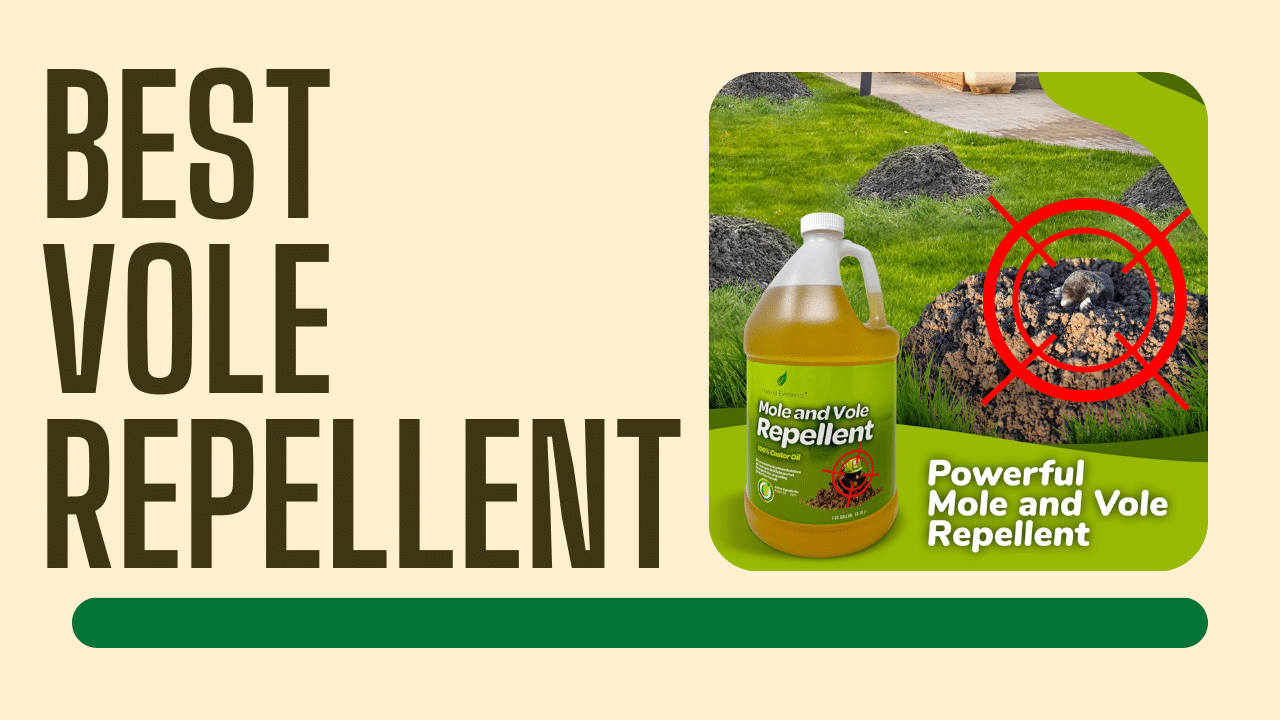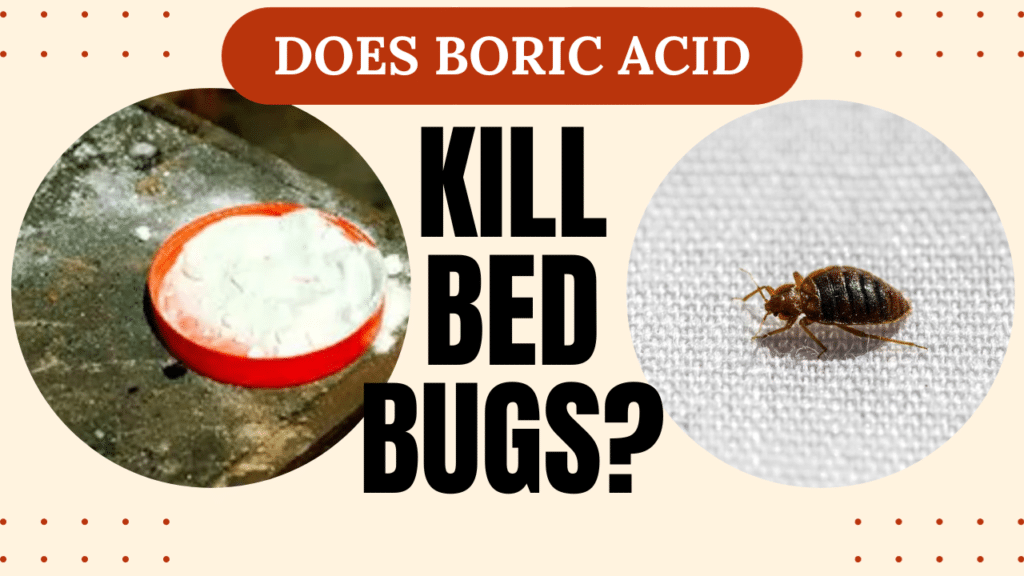
Have bed bugs turned your life upside down? These stubborn pests can give you and your loved ones sleepless nights with their annoying bites and make you take drastic measures to eliminate them. Don’t worry; it’s perfectly normal to harbor homicidal rage toward them.
If you’re considering do-it-yourself eradication options, one of the solutions you may come across is boric acid. It’s widely known for being a highly effective ant, silverfish, termite, and roach killer. But can you use it to exterminate bed bugs?
Does boric acid kill bed bugs? To help you find the truth, we’ve compiled all the important facts about the use of boric acid for bed bugs.
Contents
How Effective
Boric acid occurs naturally in some volcanic waters, minerals, and hot springs. It usually comes in the form of a white powder that somewhat resembles baking powder or laundry soap.
It is useful in a number of health, medical, and household applications.
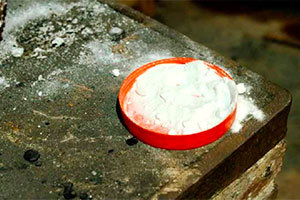
- medicated powders
- antiseptics
- astringents
- enamels
- glazes
- pesticides
- paints
- skin lotions
- glass fiber manufacturing
- eyewash products
- photography chemicals
Many professional exterminators have used it to get rid of household pests.
Another household product that has been used to control pests is baking soda. So how should you go about using baking soda for bed bugs? Go here to learn more.
What is its effect on bed bugs?
Bed bugs have a waxy outer coating that protects them from extreme heat. When this coating is damaged, they start to dehydrate slowly.
Boric acid is a desiccant – a substance that can dry out its surroundings. When you apply it to the bugs, it works by damaging their protective coating. As a result, they start becoming dehydrated and eventually die.
You should also go for a product that’s registered by the Environmental Protection Agency (EPA).
Does it exterminate?
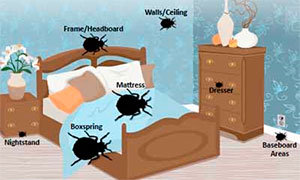
It won’t work adequately if you use it single-handedly to deal with huge infestations.
Lysol has widely been used to kill viruses and bacteria. Many individuals are now using it for pest control. So does Lysol kill bed bugs? Find out in this article.
How to Use
There are many different ways to use boric acid to kill bugs. You’ll need to use a generous amount of it. It’s also best to use it in concentrated form because a diluted solution will be less effective in killing the bugs.
Let’s take a look at the various procedures you can utilize to apply it:
- Sprinkling on infested areas
One of the most effective ways to apply boric acid is by spreading it around and in infested areas or places the pests are likely to visit. The best areas to target are cracks and holes as well as deep, dark corners of furniture. You should sprinkle the powder regularly.
After treatment, be sure to thoroughly clean the boric acid from the items or areas you frequently use or come into contact with. - Spraying
You can spray a diluted form of boric acid in cabinets and on baseboards.
- Washing with borax
You can utilize boric acid in the form of borax to remove bed bugs from blankets, sheets, and any other bedding. Simply wash the items with a mixture of borax and hot water.
- Together with a steam cleaner
You can deal with the bed bugs that have infested your furniture efficiently using boric acid and a steam cleaner. You’ll also need a dryer.
The high heat from the steam cleaner will penetrate about an inch into the furniture and totally decimate the bugs. The boric acid will be useful in preventing the nasty parasites from migrating to other areas of your house.
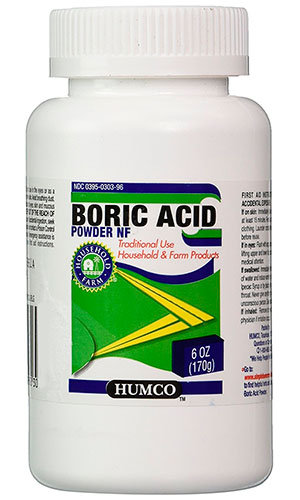
- Sprinkle the boric acid around the infested furniture.
- Remove all clothing, sheets, and blankets from the affected area. Put them in your dryer for 20-30 minutes. The heat will kill the bed bugs on the fabrics.
- Shake the fabrics outside and wash them after they’re done with the dryer.
- Treat the furniture using a steam cleaner.
- Keep sprinkling boric acid on the furniture at least once every 2 days.
It’s difficult to clean upholstery and beds thoroughly after treating them with boric acid. For that reason, it’s not advisable to use the acid on them.
If boric acid comes into contact with your skin, wash the affected area thoroughly. If it gets into your eyes accidentally, make sure you wash it out using cool water for about 15 minutes.
You can use ammonia to kill roaches. But what about bed bugs? Does ammonia kill bed bugs? This article will answer the question.
The Pros and Cons
Just like other bed bug eradication techniques, using boric acid has its advantages and disadvantages. Knowing them will go a long way in helping you decide whether to use the powder or not.
Let’s take a closer look at these advantages and disadvantages:
- Cost. Boric acid is inexpensive and readily available. It gives you a cheap and convenient way to deal with your bed bug problem.
- Long-standing effect. It offers long-lasting residual control in the common bed bug hiding sites. You don’t have to reapply it frequently.
- No resistance. Boric acid’s mode of action is physical. As a result, bed bugs can’t develop a resistance to it as they can to other pesticides with a different mode of action.
- Lack of disturbance. Boric acid doesn’t disturb the normal activities of bed bugs. Therefore, these parasites go about their business without knowing that the powder is compromising their hydration.
- Not ingested. Boric acid works best at exterminating pests when it’s ingested. Bed bugs have piercing mouthparts that make them unable to eat the powder. They only feed on blood.
Grooming also leads to ingestion of the powder. Unfortunately, bed bugs don’t groom themselves.
These facts make boric acid less effective at controlling bed bugs than it is at controlling other pests such as ants and cockroaches. - Cleaning Difficulty. Boric acid usually leaves behind a soft white film on the areas it touches. This makes it harder to clean the powder off some items such as mattresses and upholstery.
- Health Risks. While the use of boric acid doesn’t have great dangers to humans, extreme exposure can cause nausea and vomiting to allergic individuals as well as highly sensitive people. It can also burn your skin and cause severe kidney damage.
Boric acid can also disrupt the stomach and metabolism of pets if eaten.
Boric acid is one of the most affordable and easiest DIY bed bug treatments. However, it won’t be very successful if it’s used on its own. It’s best to use it as part of a bigger and more complete bed bug eradication plan.

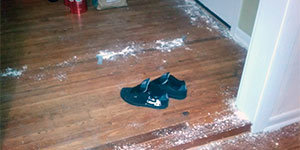 One of the most effective ways to apply boric acid is by spreading it around and in infested areas or places the pests are likely to visit. The best areas to target are cracks and holes as well as deep, dark corners of furniture. You should sprinkle the powder regularly.
One of the most effective ways to apply boric acid is by spreading it around and in infested areas or places the pests are likely to visit. The best areas to target are cracks and holes as well as deep, dark corners of furniture. You should sprinkle the powder regularly.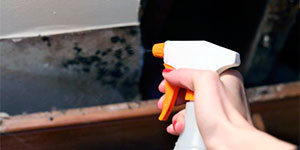 You can spray a diluted form of boric acid in cabinets and on baseboards.
You can spray a diluted form of boric acid in cabinets and on baseboards. You can utilize boric acid in the form of borax to remove bed bugs from blankets, sheets, and any other bedding. Simply wash the items with a mixture of borax and hot water.
You can utilize boric acid in the form of borax to remove bed bugs from blankets, sheets, and any other bedding. Simply wash the items with a mixture of borax and hot water.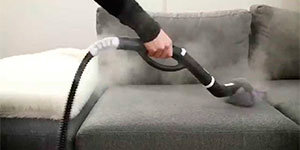 You can deal with the bed bugs that have infested your furniture efficiently using boric acid and a steam cleaner. You’ll also need a dryer.
You can deal with the bed bugs that have infested your furniture efficiently using boric acid and a steam cleaner. You’ll also need a dryer.
